MICHAEL GASIK
Aalto University Foundation
Michael Gasik is a full professor in Aalto University Foundation, School of Chemical Technology, Espoo, Finland (until 2010 – Helsinki University of Technology - TKK). He obtained his engineering degree in 1983 (special electrometallurgy), Ph.D. in 1987 (ferrous metallurgy), and two doctorates in 1995 (materials processing) and 2000 (composite materials). He also acted as visiting researcher and professor in Manchester University and UMIST (UK), Tohoku University Sendai (Japan) as well as supervising post-graduates in Estonia, Portugal, Slovenia, Japan, Belgium. The main activities of Prof. Michael Gasik are in the areas of materials processing and new materials solutions (basic metals, fuel cells, hydrogen, energy, biomaterials, tools, functional coatings, etc.) as well as their modelling and evaluation. The core competence is based on the chain "materials design - processing - structure - properties - testing - application" scientific research, management and modelling. One specific focus of research is in multi-objective design and optimization (MODAO) of materials, processes and phenomena (ab-initio and mathematical modelling combined with FEM, CFD and experimental validation) and data processing (visualisation, data mining, Bayesian analysis). He is a member of the editorial boards of several journals and has published over 180 referred articles and conference proceedings in various fields, plus 10 books and edited book chapters. He represents Finland in International Energy Agency Executive Committee (HIA) and novel biomaterials COST MP1005 action Management Committee.
Towards smart hydrogen economy: solar-to-hydrogen open and hybrid cycles
The global renewable energy strategy has identified hydrogen production by water decomposition pathways powered by renewables such as solar energy to be a major component for sustainable and carbon-free hydrogen supply. Properly designed solar-powered thermo-chemical and hybrid cycles are capable to directly transfer concentrated sunlight into chemical energy by a series of chemical and electrochemical reactions. However, only few cycles are feasible for practical realization, among which sulfur-based have been identified as the most promising ones. In this talk, some new concepts known as "open cycles" and hybrid cycles will be presented and analyzed using visualization and MCDM. The practical case of Outotec Open Cycle and Solar-Hybrid Sulfur cycle will be demonstrated and benefits of virtual multi-objective design and optimization will be discussed.




